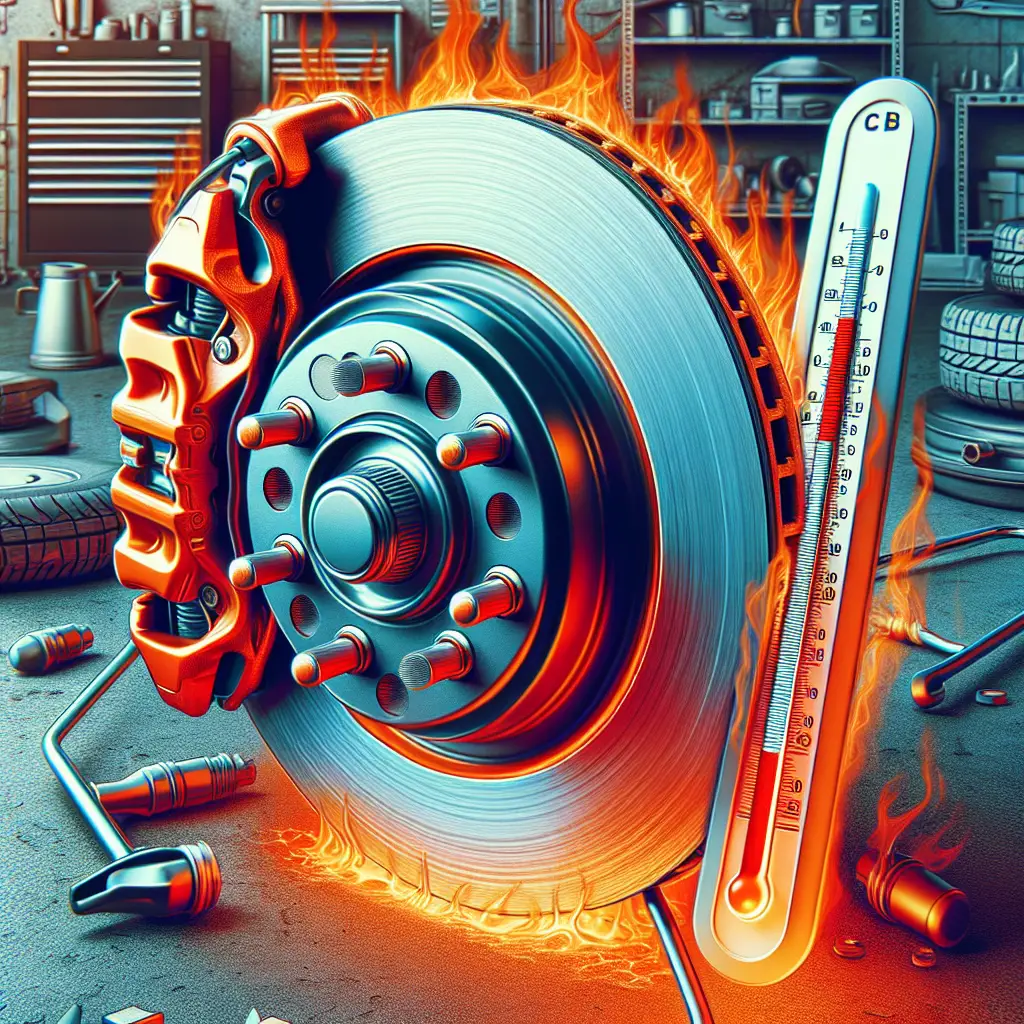How Hot Do Brake Calipers Get? Understanding the Thermal Dynamics of Your Vehicle’s Braking System
Braking might seem like a mundane part of everyday driving, but it’s an area where some fascinating—and intense—physics are at play. One critical component in this system are the brake calipers, and you may be surprised at just how hot these parts can get during regular use.
Why Brake Calipers Get Hot
To understand why brake calipers get hot, we first need to look at how braking systems work. When you press the brake pedal, hydraulic fluid is pushed through the brake lines, causing the brake calipers to clamp down on the brake rotors. This friction between the calipers, which house the brake pads, and the rotors is what slows down your vehicle.
Friction generates heat, and since this is the primary mechanism of how brakes work, it’s inevitable that some components are going to get pretty warm. It’s basically turning kinetic energy—the movement of your car—into thermal energy, i.e., heat.
Just How Hot Do They Get?
The temperature of a brake caliper during normal driving conditions can reach anywhere between 200°F to 400°F. However, during more severe use, such as high-speed driving or repeated stopping, the temperature can spike much higher. It’s not uncommon for brake calipers on performance vehicles or those involved in racing to experience temperatures well over 1000°F.
According to research conducted by Journal of Thermal Science and Engineering Applications the excessive heat generated in brake systems during high-load situations can lead to brake fade. This condition results in a loss of braking efficiency, and understanding the thermal limits of your brake components is critical to safe driving.
Factors that Affect Brake Caliper Temperature
There are a number of factors that can affect how hot your brake calipers can get:
- Driving Habits: Aggressive driving, such as speeding and frequent hard braking, increases the temperature of brake calipers.
-
Environment: Driving in hilly or mountainous terrain will also cause your brakes to work harder and heat up more.
-
Brake Pad Material: Different materials have different heat capacities. For instance, ceramic pads can handle higher temperatures than organic ones.
-
Vehicle Weight: Heavier vehicles put more strain on the brake system, causing higher temperatures.
-
Ventilation: Good airflow helps to cool down brakes. Performance vehicles often have special vents or ducts that direct air to the brakes to help dissipate heat.
Maintaining Your Brake Calipers
Given their operating conditions, brake calipers are built to withstand a lot of heat. However, regular maintenance is vital to ensure they continue to work properly. Here’s what you can do to help maintain your brake calipers:
- Regular Inspections: Check your brakes often for wear and tear. Look for any signs of corrosion or damage to the brake calipers.
-
Brake Fluid Checks: Ensure that your brake fluid is at the proper level and is changed at intervals recommended by your vehicle manufacturer.
-
Brake Pad Replacement: Replace worn brake pads to prevent damage to the caliper and the rotor.
-
Drive Mindfully: Adopting a smoother driving style can go a long way in preserving your braking system’s integrity.
If you’re routinely pushing your vehicle to its limits, you might want to consider upgrading to high-performance brake components that are designed to handle higher temperatures. Companies like Brembo specialize in high-performance braking systems that offer improved heat dissipation and reduced brake fade.
When to Seek Professional Help
If you notice any of the following symptoms, it might be time to get your brakes checked by a professional:
- Strange noises when you brake, such as squealing or grinding
- A burning smell after hard braking
- The brake warning light comes on
- The car pulls to one side when braking
Your local mechanic or an automotive specialist can diagnose issues and recommend solutions to keep your brakes in top condition. Remember, it’s better to address any brake issues early to prevent more severe problems down the road.
Conclusion
The heat generated by your brake calipers is a normal part of the braking process, but knowing how to manage and maintain them can prevent damage and ensure safety. Regular checks and mindful driving habits can extend the life of your brakes and make your driving experience smoother and more reliable.
By understanding what’s happening in the unseen parts of your vehicle, such as your brake calipers, you’re stepping into a more informed role as a car owner. It’s not just about getting from A to B, but knowing how every press of the pedal and every revolution of the wheel is a testament to the incredible engineering that drives you forward.
Stay safe on the roads, and never underestimate the importance of well-maintained brakes. After all, they’re what stand between you and the road when it comes to safe stopping.

